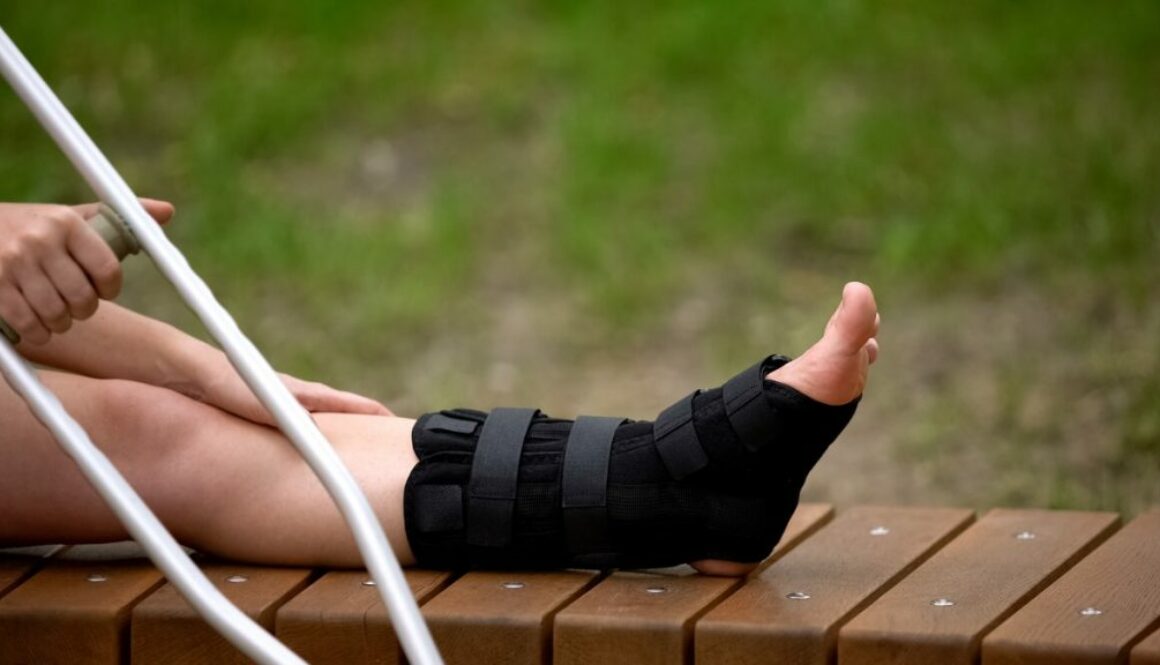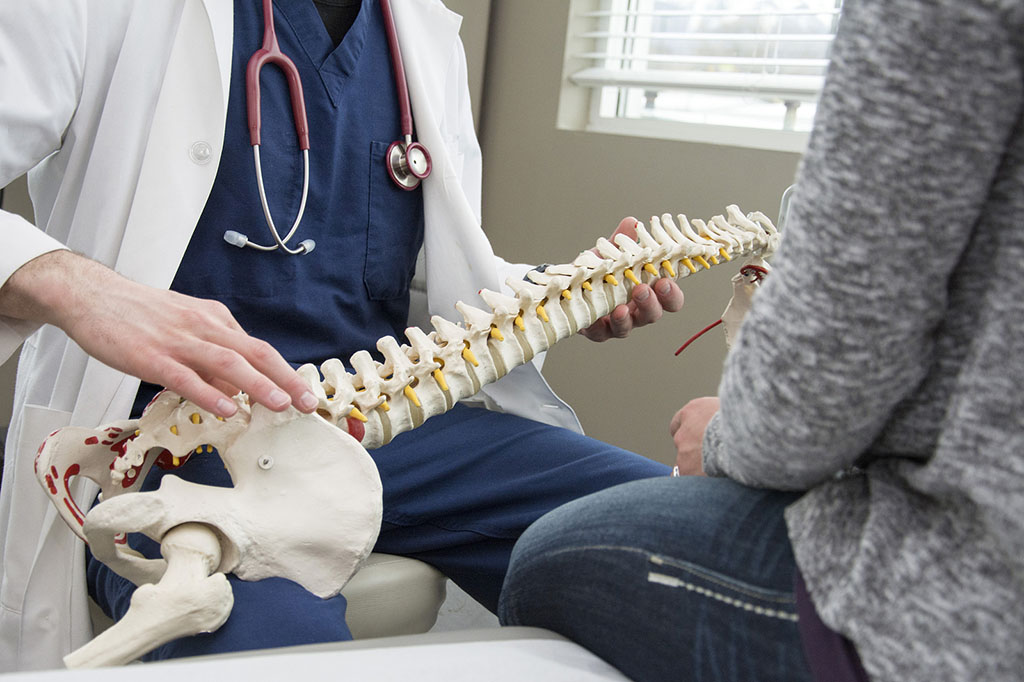The length of time it takes an ankle fracture recovery depends upon several factors, including the extent of the break and whether or not it required surgery. Complicated fractures require additional recovery and healing time.
While each individual case is different, in general, it can take four to eight weeks for your ankle fracture to heal. If you had to have surgery, it could take up to several months.
We’ll take a look at why it’s important to get immediate care for a broken ankle, a common surgery that may be needed to help ankle fracture recovery, and useful advice to help avoid ankle injuries.
How Do You Know If Your Ankle Is Broken or Sprained?
Sometimes, it may be challenging to tell if your ankle has been broken or if you’ve suffered a bad strain. In either case, you need to seek medical care from orthopedic doctors in Raleigh at the Bone and Joint Surgery Clinic.
Occasionally, you may be able to have an idea of whether it’s a sprain or a fracture by where the pain is located. If the pain is in the softer part of your ankle, you may have a sprain, while if it hurts when you touch it directly over your ankle bone, it’s more likely that you have a fracture. In addition, you’ll often hear a “pop” when an ankle fractures. Numbness or tingling are other telltale signs of a fracture.
But the bottom line is that the only way to tell for certain is to have an X-ray and be examined by one of our orthopedic physicians. This is crucial to have a successful ankle fracture recovery.
What Happens If a Broken Ankle Goes Untreated?
If your ankle has been fractured and you do not get medical attention, it can lead to long-term consequences. The main concerns are that it could cause a nonunion or a delayed union.
A nonunion occurs when the broken bone fails to heal.
By comparison, a delayed union fracture does eventually heal, but it takes much longer than is typical.
Failure to get timely treatment could cause foot deformities that can interfere with walking, running or even completing daily tasks. You’re also at a higher risk of developing an infection or arthritis if you delay with your ankle fracture recovery.
What Kind of Surgeries Are Used for a Broken Ankle?
First, it’s important to realize that you may not need surgery to treat your broken ankle at all. In fact, at the Raleigh Bone and Joint Surgery Clinic, we always implement conservative approaches to treatment. That means we will only consider surgery if it is absolutely necessary.
If surgery is needed, one of the most common procedures to help a fractured ankle is an open reduction and internal fixation (ORIF).
During an ORIF, the pieces of your bone are repositioned so that they are properly aligned and then physically reconnected, usually involving screws, rods, plates or even surgical nails. This helps ensure that the bones will heal in their proper alignment, which is a key part of ankle fracture recovery.
How To Avoid Ankle Injuries
As orthopedic specialists, we want to help you maintain your active lifestyle in the safest way possible. The best way to do that is to avoid injuries if it is at all possible.
We suggest:
- Be sure to warm up properly before you play sports.
- Be sure you’re using appropriate and well-fitting shoes.
- Try to avoid playing or running on uneven surfaces.
- Many falls occur in the home, so try to eliminate clutter that may cause you to stumble.
- Consider removing throw rugs or other similar items that can create a tripping hazard.
- Make sure to use handrails when possible.
The Raleigh Bone and Joint Surgery Clinic Will Guide Your Through Your Ankle Fracture Recovery So You Can Return to Your Everyday Activities
For decades, we’ve helped hundreds of Raleigh and Triangle area residents recover from injuries and regain their everyday lives by treating ankle and foot injuries. We have assisted them throughout their ankle fracture recovery journey.
In addition, we also help our patients by providing a comprehensive scope of services to help them with anything from carpal tunnel syndrome to sciatic nerve pain to joint replacements.
Because our surgeons are affiliated with five local hospitals and outpatient surgery centers, our patients have a choice of where they’d like to go. For more information or to schedule an appointment, contact us today.





